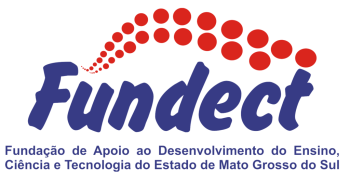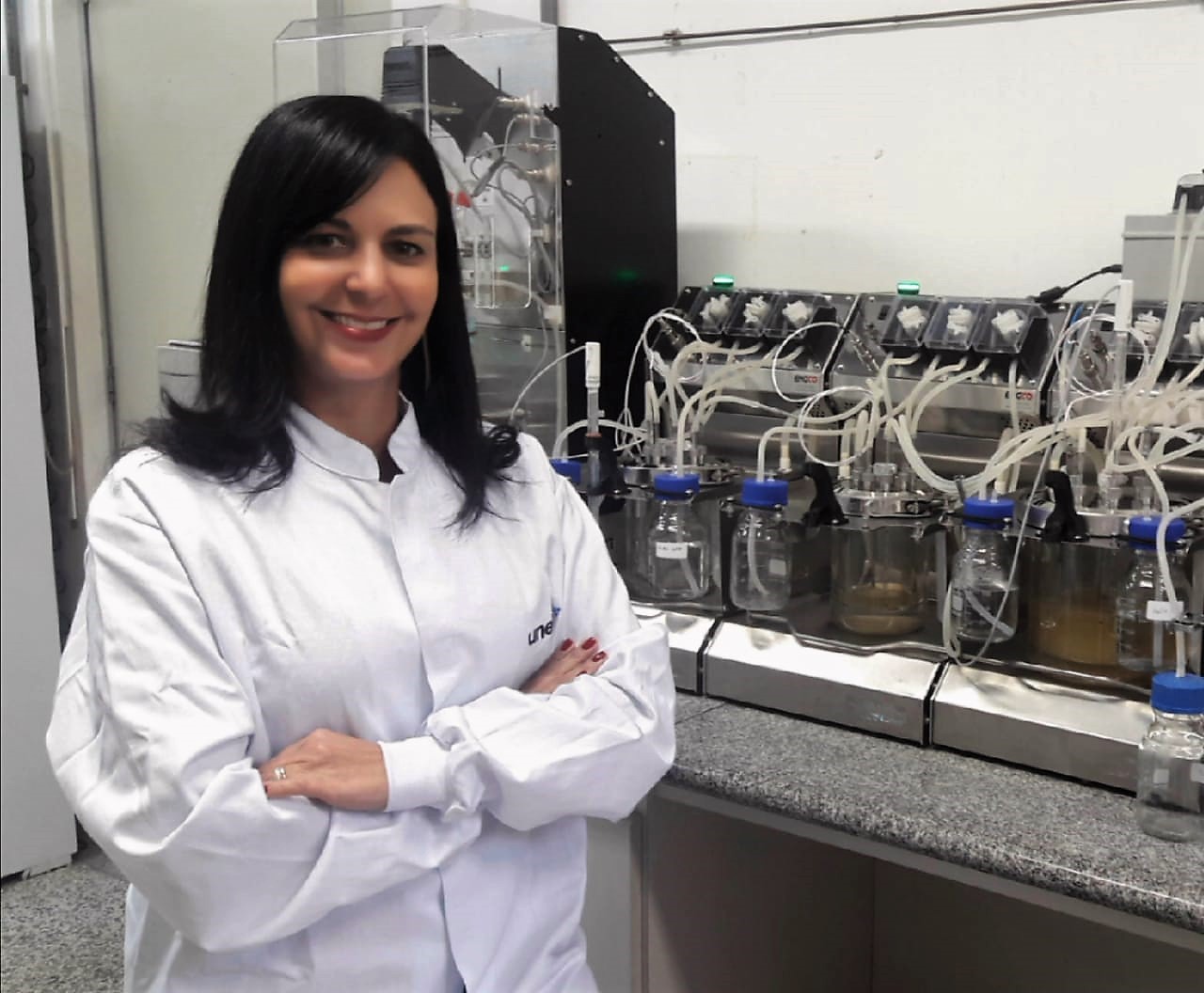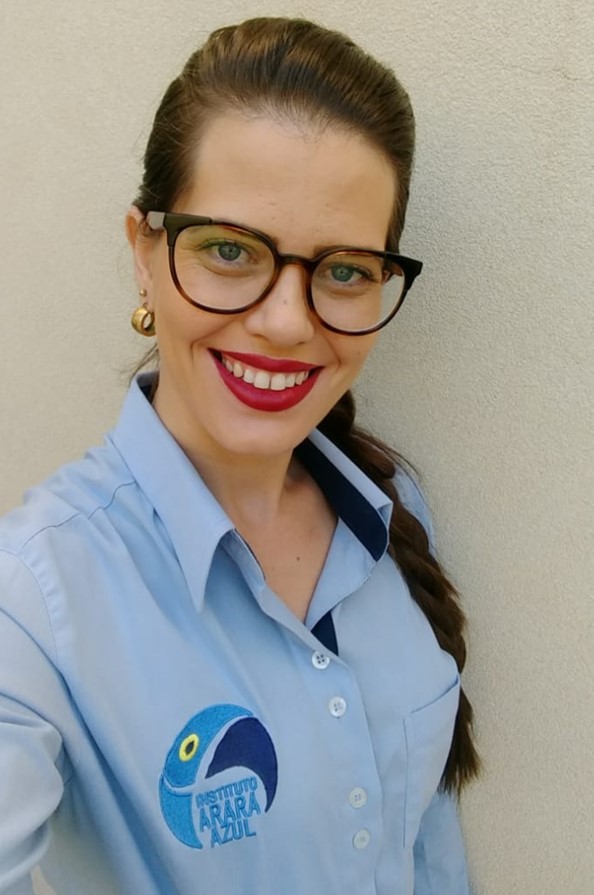| Mestrado | Patricio Lauro de Melo Neto | José Franscisco dos Reis Neto |  |  |
| Mestrado | Edwin Hewry de Sousa Silva | Eduardo de Castro Ferreira |  |  |
| Mestrado | Rafaela Maianna Cruz de Castro Freitas | Eduardo de Castro Ferreira |  |  |
| Mestrado | Luiza Camargo Rodrigues Santos | Cleber José Rodrigues Alho | | |
| Mestrado | Cintia Maria de Aguiar Morais | José Franscisco dos Reis Neto |  |  |
| Mestrado | Wilmar Souza Fortaleza Junior | | | |
| Doutorado | Izabela Cristina Prado de Souza Barbosa Ronda | José Sabino |  |  |
| Mestrado | Roberto César Duarte Gondim | Silvia Cristina Heredia Vieira | |  |
| Mestrado | Karol Rodrigues Reis Goldiano | Gilberto Goncalves Facco | |  |
| Mestrado | Nairama Pereira Barriga Feitosa | Rosemary Matias | |  |
| Mestrado | Liliane Lacerda | Ademir Kleber Mobeck de Oliveira |  |  |
| Doutorado | Jose Julian Orjuela Sepúlveda | Neiva Maria Robaldo Guedes |  |  |
| Mestrado | Caroline Penteado Santana | Rosemary Matias | | |
| Doutorado | Michelle da Rosa Lopes | Celso Correia de Souza | | |
| Mestrado | Renata Tiveron | Giselle Marques de Araújo | |  |
| Mestrado | Greg Resplande Guimaraes | Giselle Marques de Araújo |  |  |
| Mestrado | Ederson Pippus Ferreira | Giselle Marques de Araújo |  |  |
| Mestrado | Railson Silva Barbosa | Ademir Kleber Mobeck de Oliveira |  |  |
| Doutorado | Aline Martins Pereira Calderan | Neiva Maria Robaldo Guedes |  |  |
| Mestrado | Jose Rodolfo Wendt de Oliveira | Neiva Maria Robaldo Guedes | |  |
| Mestrado | Rodolfo Vagner Xaubet | Eduardo de Castro Ferreira | |  |
| Mestrado | Alba Miriam Monteiro | Silvia Cristina Heredia Vieira | |  |
| Mestrado | Giovani da Silva Xavier | Gilberto Goncalves Facco | |  |
| Mestrado | Gorett Alves Pereira | Gilberto Goncalves Facco | |  |
| Doutorado | Marcos Paulo Andrade Bianchini | Giselle Marques de Araújo |  |  |
| Doutorado | Ayron Vinicius Pinheiro de Assunção | Rosemary Matias | | |
| Mestrado | Aline Martins Pereira Calderan | Neiva Maria Robaldo Guedes | | |
| Mestrado | Jessica Maria Monteiro | Ademir Kleber Mobeck de Oliveira | |  |
| Doutorado | Giovana Coutinho Zulin Nascimento | Rosemary Matias |  |  |
| Mestrado | Naiára Cristina Cordeiro | Gilberto Goncalves Facco | |  |
| Mestrado | Lais Sousa do Nascimento | Gilberto Goncalves Facco | |  |
| Doutorado | Amanda Rodrigues Ganassin | Rosemary Matias |  |  |
| Mestrado | Ana Beatriz Ulhoa Cobalchini | Giselle Marques de Araújo | | |
| Doutorado | Pedro Luiz De Azevedo Filho | José Franscisco dos Reis Neto |  |  |
| Mestrado | Eliazél Vieira Rondon | Silvio Favero | |  |
| Mestrado | Sandra Cristina Negreli Moreira Hermes | Vânia Lúcia Brandão Nunes | |  |
| Mestrado | Andreia Arguelho Goncalves Hoffmann | Gilberto Goncalves Facco | |  |
| Doutorado | Simone Pereira da Silva Baio | Ademir Kleber Mobeck de Oliveira |  |  |
| Doutorado | Simone Geitenes Colombo | Ademir Kleber Mobeck de Oliveira | |  |
| Doutorado | Lucas Raoni Roel Souza | Rosemary Matias | |  |
| Doutorado | Luiz Octávio Gonzales Ferreira | José Sabino | |  |
| Doutorado | Carolina Ferreira Pauliquevis | Ademir Kleber Mobeck de Oliveira | |  |
| Mestrado | Alex Sandro Gomes de Moura | Eduardo de Castro Ferreira | |  |
| Doutorado | Bilkis Maria Barbosa Lima | Ademir Kleber Mobeck de Oliveira | |  |
| Doutorado | Luiz Antonio Silvio Pereira | Ademir Kleber Mobeck de Oliveira | |  |
| Mestrado | José Ricardo Pinheiro Cunha | Alessandro Marco Rossini | |  |
| Mestrado | Thais Costantin | Higo José Dalmagro | |  |
| Mestrado | Bruno Carlos Feliciano de Lima Silva | Silvia Cristina Heredia Vieira | |  |
| Doutorado | Michele Macedo Lopes | Gilberto Goncalves Facco | |  |
| Doutorado | Gislaine Tonet | Rosemary Matias | |  |
| Doutorado | Taner Douglas Alves Bitencourt | Gilberto Goncalves Facco | |  |
| Doutorado | Edison Di Fabio | Ademir Kleber Mobeck de Oliveira | |  |
| Mestrado | Michele Macedo Lopes | | |  |
| Doutorado | Fernanda Mussi Fontoura | Neiva Maria Robaldo Guedes | |  |
| Doutorado | Adelina Neres de Sousa Campos | Eduardo de Castro Ferreira |  |  |
| Mestrado | Fernanda Sollberger Canale | Rosemary Matias | |  |
| Mestrado | Samara Daniel de Souza | Lídia Maria Lopes Rodrigues Ribas | |  |
| Doutorado | Alessandro Gomes Lewandowski | Ademir Kleber Mobeck de Oliveira |  |  |
| Doutorado | Patricia Pato dos Santos | Gilberto Luiz Alves |  |  |
| Doutorado | Mirian Batista de Oliveira Bortoluzzi | Celso Correia De Souza |  |  |
| Mestrado | Adham Najeh Abdel Hamid Mohd Mustafa | Gilberto Luiz Alves |  |  |
| Mestrado | Tais Felix Gonçalves | Neiva Maria Robaldo Guedes |  |  |
| Mestrado | Fabio Romeiro Salvino | José Franscisco dos Reis Neto |  |  |
| Doutorado | Odemir Coelho da Costa | José Franscisco dos Reis Neto |  |  |
| Doutorado | Anderson Ribeiro de Almeida | José Franscisco dos Reis Neto |  |  |
| Mestrado | Ligia Maria Mendes Martins de Moura | ROSEMARY MATIAS |  |  |
| Mestrado | Évelin Céspedes Cortes | Ademir Kleber Mobeck de Oliveira |  |  |
| Doutorado | Mayra Duarte Martello | Rosemary Matias | |  |
| Mestrado | Andressa Pattaro Martins Nascimento | Rosemary Matias |  | |
| Mestrado | Natália Marques Ferreira | Giselle Marques de Araújo |  | |
| Doutorado | Mariana de Oliveira | Silvia Cristina Heredia Vieira |  | |
| Mestrado | Alex Pogodim Artioli | Emiko Kawakami de Rezende | | |
| Mestrado | Ana Cristina Garcia Anache | Eron Brum | | |
| Mestrado | Eloty Justina Dias Schleder | Ademir Kleber Mobeck de Oliveira | | |
| Mestrado | Flávio Antônio de Assis Trivellato | Celso Correia de Souza | | |
| Mestrado | Giovanna Padoa de Menezes | Vânia Lúcia Brandão Nunes | | |
| Mestrado | Helena Cisotto Sartori | Gilberto Luiz Alves | | |
| Mestrado | Iêda Maria Novaes Ilha | Ademir Kleber Mobeck de Oliveira | | |
| Mestrado | Jussara Jacques de Almeida | | | |
| Mestrado | Luiz Antônio Paiva | | | |
| Mestrado | Luiz Manuel Palmeira | José Sabino | | |
| Mestrado | Manuel Teixeira de Sousa | Silvio Jacks dos Anjos Garnés | | |
| Mestrado | Márcia Aparecida Jacometo | Ademir Kleber Mobeck de Oliveira | | |
| Mestrado | Marcus Menezes Silveira | Gilberto Luiz Alves | | |
| Mestrado | Marize Lechuga de Moraes Boranga | Gilberto Luiz Alves | | |
| Mestrado | Neila Janes Viana Vieira | Desligado | | |
| Mestrado | Roberto Ricardo Machado Gonçalves | Vera Lúcia Ramos Bononi | | |
| Mestrado | Rosângela Maria Borges dos Santos | Cancelado | | |
| Mestrado | Sergio Fracalanza Alves Correa | Vânia Lúcia Brandão Nunes | | |
| Mestrado | Vânia Abreu de Mello | Ana Maria Marques Camargo Marangoni | | |
| Mestrado | Zuleide Soares Paniago | | | |
| Mestrado | Andréa Duailibi Moreira | Vera Lúcia Ramos Bononi | | |
| Mestrado | Camila Hildebrand Gazal | Eron Brum | | |
| Mestrado | Carmem Verônica Fanaia Miquilino | Lídia Maria Lopes Rodrigues Ribas | | |
| Mestrado | Daniel Baeta de Assis | Roza Maria Schunke | | |
| Mestrado | Dorval Beling Bitencourt | Lúcia Elvira Alicia Raffo de Mascaró | | |
| Mestrado | Elio de Castro Paulino | Eron Brum | | |
| Mestrado | Enilda Maria Lemos | Gilberto Luiz Alves | | |
| Mestrado | Eugenia Aparecida dos Santos | Mercedes Abid Mercante | | |
| Mestrado | Irma Macário | Vera Lúcia Ramos Bononi | | |
| Mestrado | Luclécia Carnaúba da Costa Terra | Silvio Favero | | |
| Mestrado | Marcio Jorge Manoel Pinto | Daniel Massen Frainer | | |
| Mestrado | Marcos Cesar Lomba | Lídia Maria Lopes Rodrigues Ribas | | |
| Mestrado | Maria Bernardete Pastorello Cristaldo | Sandino Hoff | | |
| Mestrado | Maria da Glória Morais de Castro | Desligado | | |
| Mestrado | Mirian de Souza Gualberto | Lúcio Grinover | | |
| Mestrado | Simone Batista Mamede | Silvio Favero | | |
| Mestrado | Simone Cristina Putrick | Rosemary Matias | | |
| Mestrado | Ursula Sydow | Desligado | | |
| Mestrado | Vanusa Menegazzi Braga | Carla Letícia Gedial | | |
| Mestrado | Alice Sueiro de Figueiredo | Ido Luiz Michels | | |
| Mestrado | Anelise Flausino Godoy | Albana Xavier Nogueira | | |
| Mestrado | Anselmo Manarelli Neto | Celso Correia de Souza | | |
| Mestrado | Celso Fabrício Correia de Souza | Regina Sueiro de Figueiredo | | |
| Mestrado | Cristiano Miranda Cupertino | Eron Brum | | |
| Mestrado | Ester Rosane Rieger | Lúcia Elvira Alicia Raffo de Mascaró | | |
| Mestrado | Evandro Ziemann de Oliveira | Vera Lúcia Ramos Bononi | | |
| Mestrado | Felipe Moreira Salles | Celso Correia de Souza | | |
| Mestrado | Iana Aparecida Dalla Valle Oliveira | Vera Lúcia Ramos Bononi | | |
| Mestrado | José Gehilson da Silva | Cancelado | | |
| Mestrado | Marco de Barros Costacurta | José Sabino | | |
| Mestrado | Marcos André Madrid da Silva | Lúcia Elvira Alicia Raffo de Mascaró | | |
| Mestrado | Marcos Rezende Morandi | Mercedes Abid Mercante | | |
| Mestrado | Mireilly Marques Resende | | | |
| Mestrado | Rodrigo Ferreira Abdo | Lúcia Elvira Alicia Raffo de Mascaró | | |
| Mestrado | Samuel Coelho Lima | Gilberto Luiz Alves | | |
| Mestrado | Saulo Monteiro de Souza | Ademir Kleber Mobeck de Oliveira | | |
| Mestrado | Aloizo Rodrigues dos Santos | Lúcia Elvira Alicia Raffo de Mascaró | | |
| Mestrado | Andrea Cadija Duarte Jafar | Ademir Kleber Mobeck de Oliveira | | |
| Mestrado | César Augusto Vollet | Eron Brum | | |
| Mestrado | Edna Guimarães de Campos | Ademir Kleber Mobeck de Oliveira | | |
| Mestrado | Elisabeth Sydow | Lúcia Elvira Alicia Raffo de Mascaró | | |
| Mestrado | Fannyliz Alvarenga de Oliveira Tibcherani | José Sabino | | |
| Mestrado | Gilberto Alves Barbosa | Rosemary Matias | | |
| Mestrado | Helder Antônio de Souza | Mercedes Abid Mercante | | |
| Mestrado | Jefferson Teruya de Souza | Ademir Kleber Mobeck de Oliveira | | |
| Mestrado | Leandro Francisco Fernandes Santos | | | |
| Mestrado | Maria Antonietta Castro Pivatto | Desligado | | |
| Mestrado | Marta Olinda dos Santos Cara | Mercedes Abid Mercante | | |
| Mestrado | Nelson Lopes de Oliveira Júnior | Rosemary Matias | | |
| Mestrado | Patrícia Simara Imhof Knevitz | Rosemary Matias | | |
| Mestrado | Tchoya Gardenal Fina Nascimento | Ademir Kleber Mobeck de Oliveira | | |
| Mestrado | Ana Rachel Oliveira de Andrade | Vânia Lúcia Brandão Nunes | | |
| Mestrado | Ângela Maria de Sousa Perez | Albana Xavier Nogueira | | |
| Mestrado | Carla Dal Piva | Vera Lúcia Ramos Bononi | | |
| Mestrado | Cássio Giovanni de Aguiar Costa | Regina Sueiro de Figueiredo | | |
| Mestrado | Edi Mary Monteiro | Regina Sueiro de Figueiredo | | |
| Mestrado | Edimara Côrtes Gonçalves Frescura | Eron Brum | | |
| Mestrado | Evelyn Íris Leite Morales | Eron Brum | | |
| Mestrado | Fábio Henrique da Silva | Vânia Lúcia Brandão Nunes | | |
| Mestrado | Fátima Regina de Saboya Salgado | Lúcia Elvira Alicia Raffo de Mascaró | | |
| Mestrado | Hélia Rosani Toniasso | José Sabino | | |
| Mestrado | João Vieira de Almeida Neto | Neiva Maria Robaldo Guedes | | |
| Mestrado | Lis Damasceno de Oliveira | Ademir Kleber Mobeck de Oliveira | | |
| Mestrado | Lucilene Luzia Bigattão | Celso Correia de Souza | | |
| Mestrado | Marnilce Soares Mendes Rodrigues | Rosemary Matias | | |
| Mestrado | Mirella Ferreira da Cunha Santos | Trancado | | |
| Mestrado | Ricardo Anghinoni Bocchese | Lídia Maria Lopes Rodrigues Ribas | | |
| Mestrado | Rubens Moraes da Costa Marques | Lúcia Elvira Alicia Raffo de Mascaró | | |
| Mestrado | Terezinha Cristina Viegas | Regina Sueiro de Figueiredo | | |
| Mestrado | Alicéia de Almeida Silva | Lídia Maria Lopes Rodrigues Ribas | | |
| Mestrado | Andréa de Araújo Morais | Silvio Jacks dos Anjos Garnés | | |
| Mestrado | Claudia Bitencourt Brandão | Cleber José Rodrigues Alho | | |
| Mestrado | Débora Alves Pereira | Eron Brum | | |
| Mestrado | Elisangela Manieri | Silvio Favero | | |
| Mestrado | Erica Alves da Silva | Silvio Jacks dos Anjos Garnés | | |
| Mestrado | Fernanda Alquini | Celso Correia de Souza | | |
| Mestrado | Glauber Bilhalba de Almeida | Celso e Jose Francisco | | |
| Mestrado | Hercília Magalhães | Sandino Hoff | | |
| Mestrado | Ivan Vieira | Gilberto Luiz Alves | | |
| Mestrado | Larissa Figueiredo de Oliveira | Celso Correia de Souza | | |
| Mestrado | Renata Machado Garcia | | | |
| Mestrado | Sirley Böeing | Ademir Kleber Mobeck de Oliveira | | |
| Mestrado | Tatiana de Freitas Pinazo | Sandino Hoff | | |
| Mestrado | Valtecir Fernandes | Sandino Hoff | | |
| Mestrado | Walteir Roberto de Souza | | | |
| Mestrado | Camila Rocha Carrenho | Regina Sueiro de Figueiredo | | |
| Mestrado | Daniela Santos Benante | José Sabino | | |
| Mestrado | Fábio Fernando Martins de Oliveira | Mercedes Abid Mercante | | |
| Mestrado | Geovane Cândido da Silva | Sandino Hoff | | |
| Mestrado | Guilherme Aparecido da Silva Maia | Gilberto Luiz Alves | | |
| Mestrado | Josiane Ratier de Quevedo | Ademir Kleber Mobeck de Oliveira | | |
| Mestrado | Kellyn Negri | José Sabino | | |
| Mestrado | Lara Pedotti Striquer | Trancado | | |
| Mestrado | Luanna Franceska Cardnal Vieira | Celso Correia de Souza | | |
| Mestrado | Luiz Adalberto Philippsen Junior | 05/04/2011 | | |
| Mestrado | Raquel Mendes de Freitas | Lídia Maria Lopes Rodrigues Ribas | | |
| Mestrado | Vanessa Pinto Oleques Pradebon | Silvio Favero | | |
| Mestrado | Aleida Resende Alves Gonçalves | Mercedes Abid Mercante | | |
| Mestrado | Cintia de Oliveira Conte | Silvio Favero | | |
| Mestrado | Elysangela Lay Tufaile | Cleber José Rodrigues Alho | | |
| Mestrado | Luciene Andrade Barbosa | José Franscisco dos Reis Neto | | |
| Mestrado | Pedro Zaina | Celso Correia de Souza | | |
| Mestrado | Roberta Machado Pereira Dorneles | Daniel Massen Frainer | | |
| Mestrado | Rosiane de Morais | Rosemary Matias | | |
| Mestrado | Thayla Caroline de Arruda Venâncio | Eron Brum | | |
| Mestrado | Andréa Janaina Cayres Estrela | Celso Correia de Souza | | |
| Mestrado | Carolina Maria Jorge Camargo | Gilberto Luiz Alves | | |
| Mestrado | FERNANDO MACHADO KLEIN | José Sabino | | |
| Mestrado | Hellen Prado Benevides Queiroz | Gilberto Luiz Alves | | |
| Mestrado | Izabela Cristina Prado de Souza Barbosa Ronda Paiva | Ademir Kleber Mobeck de Oliveira | | |
| Mestrado | Juliana Pinto Pires de Oliveira Escandolhero | Vera Lúcia Ramos Bononi | | |
| Mestrado | Lilian Brandão de Oliveira | Gilberto Luiz Alves | | |
| Mestrado | Luan José Jorge Camargo | Desligado | | |
| Mestrado | Marcela Paiva da Silva | Albana Xavier Nogueira | | |
| Mestrado | Maria Cristiane Fernandes da Silva Lunas | Celso Correia de Souza | | |
| Mestrado | Maria de Fátima Bregolato Rubira de Assis | Lídia Maria Lopes Rodrigues Ribas | | |
| Mestrado | Maria de Fátima Lessa Bellé | Vera Lúcia Ramos Bononi | | |
| Mestrado | Marina Brun Bucker | José Sabino | | |
| Mestrado | Mayara Cruvinel De Oliveira | Celso Correia de Souza | | |
| Mestrado | Nilce Romero Lucchese | Rosemary Matias | | |
| Mestrado | Selma Rocha Dos Santos | Cleber José Rodrigues Alho | | |
| Mestrado | Suellem Petilim Gomes | Lúcia Elvira Alicia Raffo de Mascaró | | |
| Mestrado | Taciany Ferreira De Souza | Eduardo de Castro Ferreira | | |
| Mestrado | Andreia Fernandes Brilhante | Vânia Lúcia Brandão Nunes | | |
| Mestrado | Daniele Coelho Marques | Silvio Favero | | |
| Mestrado | Marcos Roberto Costa | Gilberto Luiz Alves | | |
| Mestrado | Suéllem Luzia Costa Borges De Oliveira | Lídia Maria Lopes Rodrigues Ribas | | |
| Mestrado | Regiane Dedé De Oliveira | José Sabino | | |
| Mestrado | Ana Claudia Marques | Gilberto Luiz Alves | | |
| Mestrado | Ana Lucia Americo Antonio | Mercedes Abid Mercante | | |
| Mestrado | Celia Regina De Souza | Gilberto Luiz Alves | | |
| Mestrado | Ednaldo Almeida Dos Santos | Vera Lúcia Ramos Bononi | | |
| Mestrado | Eiane Basilio De Lima | Rosemary Matias | | |
| Mestrado | Emerson Paulo Rodrigues Santos | Sandino Hoff | | |
| Mestrado | Fabiane Gomes Da Silva De Lima | Trancado | | |
| Mestrado | Gisele Santos Estrella | Rosemary Matias | | |
| Mestrado | Karina Dalla Pria Balejo | José Sabino | | |
| Mestrado | Karolinne Sotomayor Azambuja Canazilles | Silvio Favero | | |
| Mestrado | Katiúcia Oliskovicz | Cleber José Rodrigues Alho | | |
| Mestrado | Leonel Da Conceição Gomes Pinto | | | |
| Mestrado | Luciana Pinheiro Ferreira | Mercedes Abid Mercante | | |
| Mestrado | Pamela Leal De Figueiredo | Desligado | | |
| Mestrado | Roberto Itsuo Sonohata | José Sabino | | |
| Mestrado | Sabrina Piacentini | Desligado | | |
| Mestrado | Thaís Fernanda Silva guimarães | Mercedes Abid Mercante | | |
| Mestrado | Fernanda Mussi Fontoura | | | |
| Mestrado | Patrícia Daniele Matos Ferreira Gomes | Silvio Favero | | |
| Mestrado | Adauto Alves de Macedo | Cleber José Rodrigues Alho | | |
| Mestrado | Aline Duarte Edilson | José Sabino | | |
| Mestrado | Bruna Lucianer | José Sabino | | |
| Mestrado | Cristiane Benevides Pinto Komiyama Martins de Alme | Gilberto Luiz Alves | | |
| Mestrado | Emilia Alibio Oppliger | Neiva Maria Robaldo Guedes | | |
| Mestrado | Giuliano Nascimento Rangel de Aquino | José Sabino | | |
| Mestrado | Isa Maria Formaggio Marques Guerini | José Sabino | | |
| Mestrado | Milene Santos Estrella Lopes | | | |
| Mestrado | Rennan Vilhena Pirajá | Cleber José Rodrigues Alho | | |
| Mestrado | Carolina Ferreira Pauliquevis | Silvio Favero | | |
| Mestrado | Kelly Cristina Lacerda Pereira | Ana Tereza Gomes Guerrero | | |
| Mestrado | Ana Carolina Rosa | Ademir Kleber Mobeck de Oliveira | | |
| Mestrado | Elvia Silvia Rizzi | Ademir Kleber Mobeck de Oliveira | | |
| Mestrado | Francelina Albuquerque Chaves | Daniel Massen Frainer | | |
| Mestrado | José Carlos Pina | Desligado | | |
| Mestrado | Larissa Tinoco Barbosa | | | |
| Mestrado | Mônica Triani Kriesel | Regina Sueiro de Figueiredo | | |
| Mestrado | Robson Sitorski Lins | Albana Xavier Nogueira | | |
| Mestrado | Rosane Ferreira Lima | Ana Tereza Gomes Guerrero | | |
| Mestrado | Victor Augusto Merli Oliveira Lima | Celso Correia de Souza | | |
| Mestrado | Camila Amaro De Souza | Rosemary Matias | | |
| Mestrado | Heidine Jussaine Simoes Malaquias | Silvio Favero | | |
| Mestrado | Jose Julian Orjuela Sepulveda | Ana Maria Marques Camargo Marangoni | | |
| Mestrado | Leila Roque Ribeiro Marques | Silvio Favero | | |
| Mestrado | Raul Assef Castelao | Mauro Henrique Soares da Silva | | |
| Mestrado | Renê Mohr | Lídia Maria Lopes Rodrigues Ribas | | |
| Mestrado | Roberto Ribeiro Soares De Carvalho | Sandino Hoff | | |
| Mestrado | Soraya Saab | Rosemary Matias | | |
| Mestrado | Ana Claudia Navarrete Menezes | Rosemary Matias | | |
| Mestrado | Carolina Cereser Fracaro | Vera Lúcia Ramos Bononi | | |
| Mestrado | Sarah Dourado Gomes Lopes | Cleber José Rodrigues Alho | | |
| Mestrado | Sintya De Santis Ascencio | Giselle Marques de Araújo | | |
| Mestrado | Vanessa Rodrigues Bentos | Lídia Maria Lopes Rodrigues Ribas | | |
| Mestrado | Bruna Da Silva Andrade | Cleber José Rodrigues Alho | | |
| Mestrado | Luiz Octávio Gonzales Ferreira | Silvio Favero | | |
| Mestrado | Marta Regina Da Silva Melo | Mauro Henrique Soares da Silva | | |
| Mestrado | Pâmella Gonçalves da Silva | | | |
| Mestrado | Ubirajara Cecilio Garcia | Celso Correia de Souza | | |
| Mestrado | Jeferson de Paulo Almeida | Desligado | | |
| Mestrado | Odemir Coelho Da Costa | Ademir Kleber Mobeck de Oliveira | | |
| Mestrado | Denilson Rodrigues De Oliveira | Gilberto Luiz Alves | | |
| Mestrado | Fabricia De Carvalho Torquato | Rosemary Matias | | |
| Mestrado | Gislaine Tonet | Eduardo de Castro Ferreira | | |
| Mestrado | Izabeli Valéria Ajala Da Silva | Vera Lúcia Ramos Bononi | | |
| Mestrado | Maria Geslei Lopes De Souza | | | |
| Mestrado | Ayron Vinícius Pinheiro De Assunção | Daniel Massen Frainer | | |
| Mestrado | Carlos Roberto Canuto De Sena | Ademir Kleber Mobeck de Oliveira | | |
| Mestrado | Diane Xavier dos Santos | Ana Tereza Gomes Guerrero | | |
| Mestrado | Franciele Vieira da Silva | Eduardo de Castro Ferreira | | |
| Mestrado | Giovana Coutinho Zulin Nascimento | | | |
| Mestrado | Glauciane Norte de Paulo | Silvio Favero | | |
| Mestrado | Jessica de Moraes do Nascimento | Emiko Kawakami de Rezende | | |
| Mestrado | Raquel Costa de Oliveira | | | |
| Mestrado | Ailene de Oliveira Figueiredo | Daniel Massen Frainer | | |
| Mestrado | Fábio Aparecido Julio | Desligado | | |
| Mestrado | Felipe Cesar Veloso de Oliveira | Gilberto Luiz Alves | | |
| Mestrado | Glauce Sueline de Siqueira | Silvio Favero | | |
| Mestrado | Laura Santiago | | | |
| Mestrado | Patrícia Oliveira Chaves | | | |
| Mestrado | Renner Fernando da Silva Córdova Junior | Daniel Massen Frainer | | |
| Mestrado | Sandra Demétrio Lara | Eron Brum | | |
| Mestrado | Ermirio Barbosa Pereira | Celso Correia de Souza | | |
| Mestrado | Gislaine Medeiros | Gilberto Goncalves Facco | | |
| Mestrado | Mari Gislaine Moreira | Vânia Lúcia Brandão Nunes | | |
| Mestrado | Alex da Silva Oliveira | Silvio Favero | | |
| Mestrado | Ewerton Bellinati da Silva | Gilberto Luiz Alves | | |
| Mestrado | João Paulo Abdo | Vera Lúcia Ramos Bononi | | |
| Mestrado | Kamila Martins da Cruz | Ademir Kleber Mobeck de Oliveira | | |
| Mestrado | Kelly Cristina Hokama | | | |
| Mestrado | Luiz Guilherme Pinheiro de Lacerda | Ana Maria Marques Camargo Marangoni | | |
| Mestrado | Robson Marcelo Oliveira Eloi | Silvio Favero | | |
| Mestrado | Analícia Ortega Hartz | Ademir e Jose Francisco | | |
| Mestrado | Claudionora Neves Alves de Souza | Silvia Cristina Heredia Vieira | | |
| Mestrado | Ingryd Khristina de Brito | Giselle Marques de Araújo | | |
| Mestrado | Leontino Ferreira de Lima Junior | Ademir Kleber Mobeck de Oliveira | | |
| Mestrado | Ludmila Freitas Ferraz | Giselle Marques de Araújo | | |
| Mestrado | Gustavo Corrêa Bezerra de Araújo | Alessandro Marco Rossini | | |
| Mestrado | Nathalia Gabrielli Córdoba Nunes | Silvia Cristina Heredia Vieira | | |
| Mestrado | Nathália Oliveira de Morais | Higo José Dalmagro | | |
| Mestrado | Patricia de Cassia Barros de Sousa | Silvia Cristina Heredia Vieira | | |
| Mestrado | Renato Luiz de Carvalho | Giselle Marques de Araújo | | |
| Mestrado | Vinicius Gonzales Cardoso | Giselle Marques de Araújo | | |
| Doutorado | Alex Sandro Richter Won Muhlen | Celso Correia de Souza | | |
| Doutorado | Edrilene Barbosa Lima Justi | Celso Correia de Souza | | |
| Doutorado | Maria Cristiane Fernandes da Silva Lunas | Ademir Kleber Mobeck de Oliveira | | |
| Doutorado | Pedro Zaina | Silvio Favero | | |
| Doutorado | RENATA MACHADO GARCIA DALPIAZ | Gilberto Luiz Alves | | |
| Doutorado | Vespasiano de Abreu da Hora | Gilberto Luiz Alves | | |
| Doutorado | ANDREIA CRISTINA LOPES CORREA | Rosemary Matias | | |
| Doutorado | Edy Carlos Santos de Lima | Ademir Kleber Mobeck de Oliveira | | |
| Doutorado | Fábio Fernando Martins de Oliveira | Ademir Kleber Mobeck de Oliveira | | |
| Doutorado | JORGE DE SOUZA PINTO | Celso Correia de Souza | | |
| Doutorado | KAROLINNE SOTOMAYOR AZAMBUJA CANAZILLES | Gilberto Luiz Alves | | |
| Doutorado | Maria Margareth Escobar Ribas Lima | Gilberto Luiz Alves | | |
| Doutorado | MARIZA CORREA DA SILVA | José Sabino | | |
| Doutorado | Sthefany Caroline Bezerra da Cruz Silva | Rosemary Matias | | |
| Doutorado | Valtecir Fernandes | Ademir Kleber Mobeck de Oliveira | | |
| Doutorado | Waldir Leonel | Gilberto Luiz Alves | | |
| Doutorado | AGUINALDO ROCHA GOMES | Lídia Maria Lopes Rodrigues Ribas | | |
| Doutorado | DANIELLE CARDOSO DE MOURA | Cleber José Rodrigues Alho | | |
| Doutorado | DENISE ABRÃO NACHIF | Gilberto Luiz Alves | | |
| Doutorado | Edneuza Alves Trugillo | Rosemary Matias | | |
| Doutorado | FÁBIO LUCIANO VIOLIN | Gilberto Luiz Alves | | |
| Doutorado | Gildete Evangelista da Silva | Mercedes Abid Mercante | | |
| Doutorado | Giselda Paula Tedesco | Gilberto Luiz Alves | | |
| Doutorado | HEVELYNE HENN DA GAMA VIGANO | Celso Correia de Souza | | |
| Doutorado | Luciana Correia Diettrich | Ademir Kleber Mobeck de Oliveira | | |
| Doutorado | Marcia Ferreira Cristaldo | Celso Correia de Souza | | |
| Doutorado | MARILYN APARECIDA ERROBIDARTE DE MATOS | Sandino Hoff | | |
| Doutorado | MARTA COSTA BECK | Sandino Hoff | | |
| Doutorado | KELLY CRISTINA LACERDA PEREIRA | Ademir Kleber Mobeck de Oliveira | | |
| Doutorado | Lilian da Silva Paiva | Gilberto Luiz Alves | | |
| Doutorado | Marco Aurelio Perroni Pires | Sandino Hoff | | |
| Doutorado | RENNAN VILHENA PIRAJ | Mercedes Abid Mercante | | |
| Doutorado | Ana Claudia Marques | Gilberto Luiz Alves | | |
| Doutorado | Fabio Martins Ayres | Mercedes Abid Mercante | | |
| Doutorado | Jiyan Yari | Silvio Favero | | |
| Doutorado | Larissa Tinoco Barbosa | Neiva Maria Robaldo Guedes | | |
| Doutorado | Leandro de Jesus | Celso Correia de Souza | | |
| Doutorado | Nayara Zielasko Trombini Garcia | Silvio Favero | | |
| Doutorado | Tchoya Gardenal Fina do Nascimento | Rosemary Matias | | |
| Doutorado | Victor Augusto Merli Oliveira Lima | Celso Correia de Souza | | |
| Doutorado | Victoria Mauricio Delvizio | Rosemary Matias | | |
| Doutorado | Dennis Hanson Costa | José Sabino | | |
| Doutorado | Heidine Jussaine Simoes Malaquias | Rosemary Matias | | |
| Doutorado | José Carlos Pina | Ademir Kleber Mobeck de Oliveira | | |
| Doutorado | Raul Assef Castelao | Celso Correia de Souza | | |
| Doutorado | Simone Batista Mamede | Cleber José Rodrigues Alho | | |
| Doutorado | Valdir Antonio Balbino | Celso Correia de Souza | | |
| Doutorado | Eliane Rosa da Silva Dilkim | Rosemary Matias | | |
| Doutorado | Gabriel Nava Lima | Ademir Kleber Mobeck de Oliveira | | |
| Doutorado | Gláuber Túlio Fonseca Coelho | Daniel Massen Frainer | | |
| Doutorado | Helone Eloisa Frazão Guimarães Faray | Vânia Lúcia Brandão Nunes | | |
| Doutorado | Ildenice Nogueira Monteiro | Rosemary Matias | | |
| Doutorado | José Ribamar Neres Costa | Celso Correia de Souza | | |
| Doutorado | Mireilly Marques Resende | Rosemary Matias | | |
| Doutorado | Selma Maria Rodrigues | Gilberto Luiz Alves | | |
| Doutorado | Guilherme Aparecido da Silva Maia | Rosemary Matias | | |
| Doutorado | Marcos Roberto Costa | Daniel Massen Frainer | | |
| Doutorado | Marta Regina da Silva Melo | Neiva Maria Robaldo Guedes | | |
| Doutorado | Pâmella Gonçalves da Silva | Rosemary Matias | | |
| Doutorado | Wesley Osvaldo Pradella Rodrigues | CELSO CORREIA DE SOUZA | | |
| Doutorado | Antonio Sérgio Eduardo | Daniel Massen Frainer | | |
| Doutorado | Daniele Coelho Marques | Sandino Hoff | | |
| Doutorado | João Bosco Arbués Carneiro Junior | Celso Correia de Souza | | |
| Doutorado | Luciana Virgili Pedroso Garcia | Ademir Kleber Mobeck de Oliveira | | |
| Doutorado | Rosiane de Morais | Neiva Maria Robaldo Guedes | | |
| Doutorado | Suellem Luzia Costa Borges | Rosemary Matias | | |
| Doutorado | Emilia Alibio Oppliger | Ademir Kleber Mobeck de Oliveira | | |
| Doutorado | Dayse Centurion da Silva | Sandino Hoff | | |
| Doutorado | Miriam da Glória Seoldo Ferreira Monteiro | Neiva Maria Robaldo Guedes | | |
| Doutorado | Ríndhala Jadão Rocha Falcão | Silvia Cristina Heredia Vieira | | |












